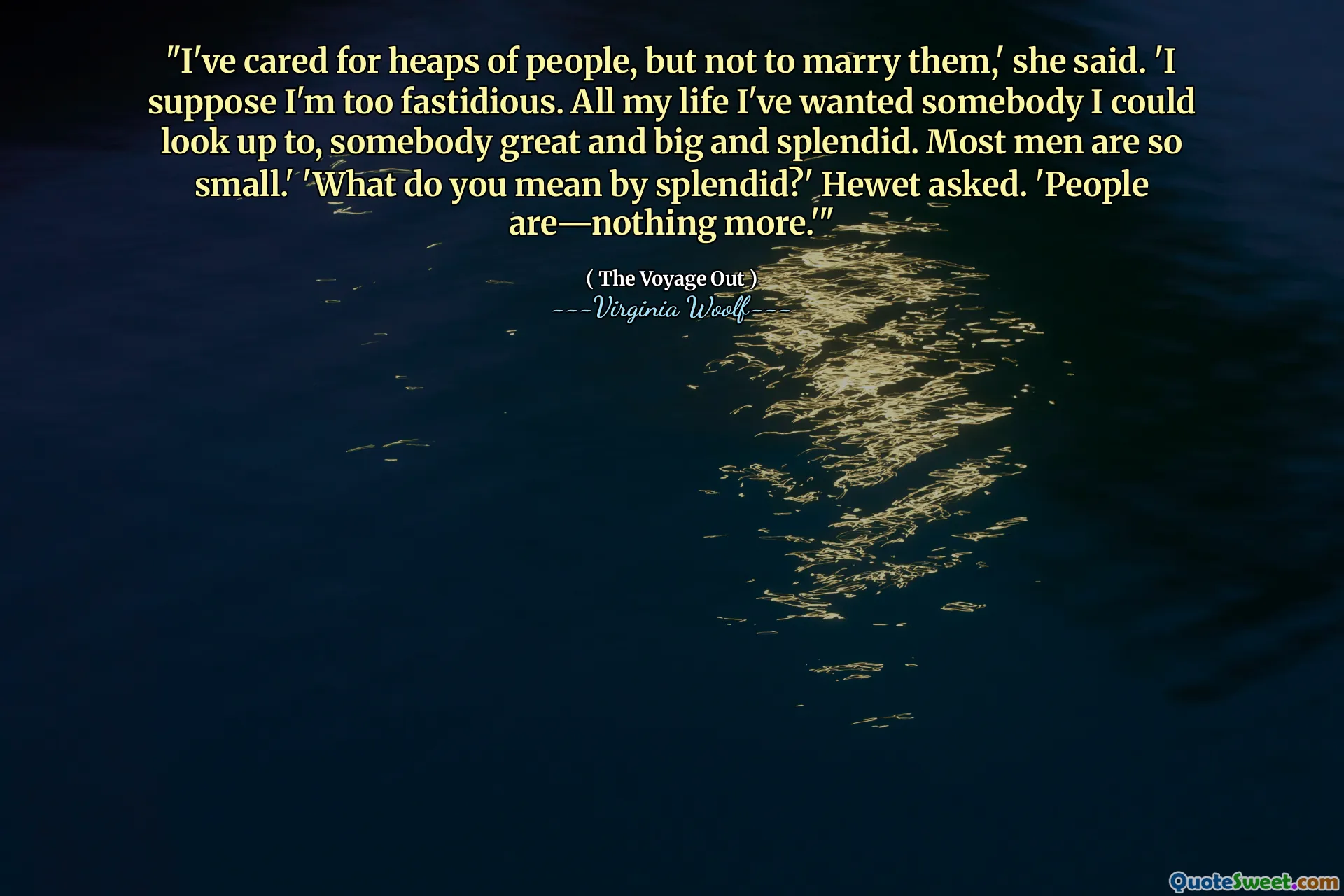
"I've cared for heaps of people, but not to marry them,' she said. 'I suppose I'm too fastidious. All my life I've wanted somebody I could look up to, somebody great and big and splendid. Most men are so small.' 'What do you mean by splendid?' Hewet asked. 'People are—nothing more.'"
This excerpt from Virginia Woolf's The Voyage Out delves deeply into human relationships, highlighting the narrator's yearning for admiration and greatness in a partner. The speaker distinguishes between mere affection and a profound respect and awe that elevates love beyond routine companionship. Her admission of being "too fastidious" suggests a meticulous, perhaps idealistic, approach to choosing a partner, yearning for someone "great and big and splendid." This idealisation reflects a deeper human desire not just for love, but for inspiration and exemplarity within relationships. The conversation also gestures towards a poignant worldview — the reduction of "people" to "nothing more" suggests a subtle existential reflection on the limitations and complexities of human nature. Woolf elegantly captures the tension between wanting to bind oneself to another and struggling with ideals that might be unattainable in ordinary human beings. This tension reminds us that personal connections are often a negotiation between our highest aspirations and the imperfect reality of those around us. Woolf's prose resonates with readers who have grappled with the challenge of reconciling love for others with a quest for personal meaning and greatness in those we cherish. The passage raises broader themes about the nature of admiration, the depth of emotional connection, and the often sobering recognition that humans may fall short of grandeur despite our desires.






